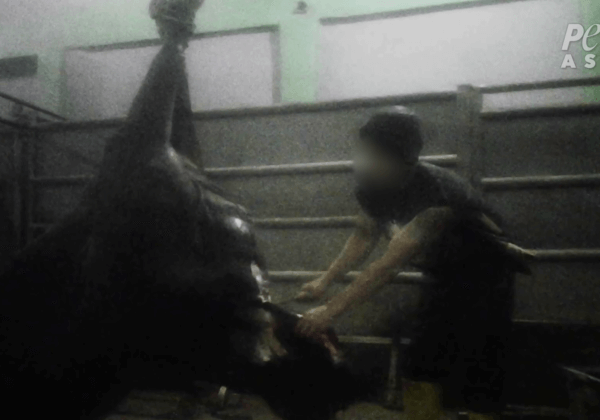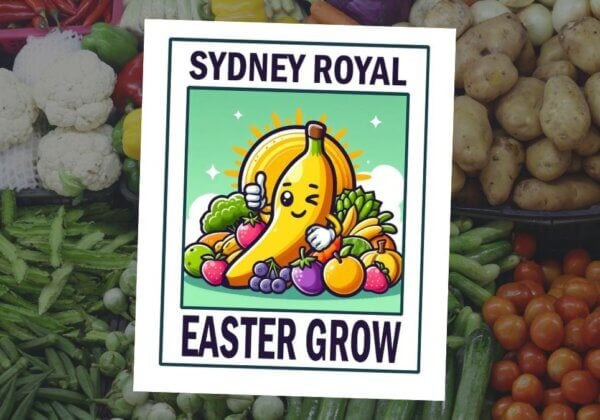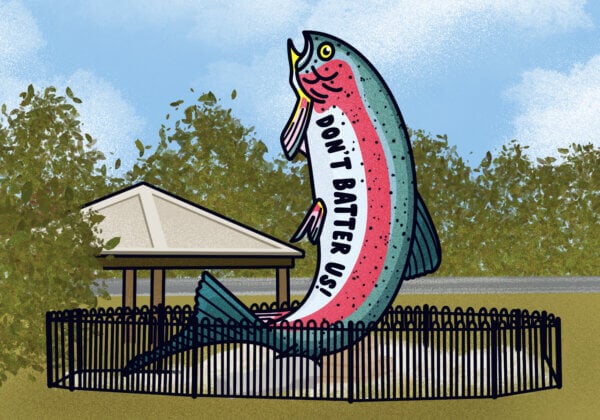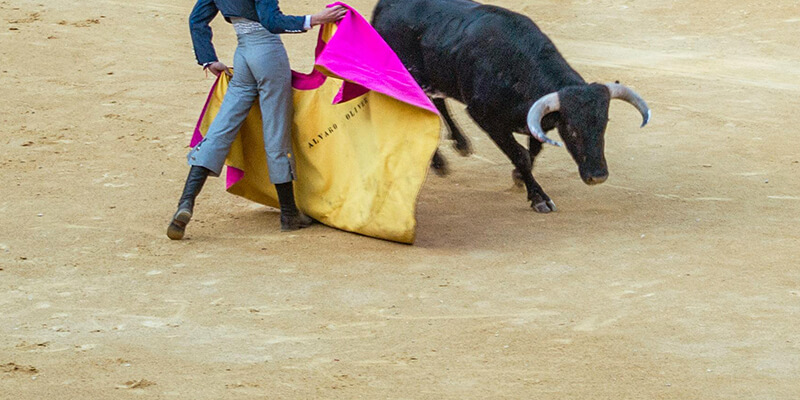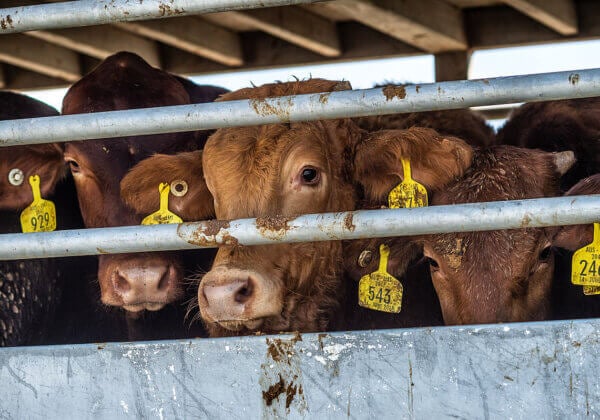Deprivation and Death: Why Cows Aren’t Celebrating Dairy Week
Imagine a mother condemned to a cycle of forced pregnancies and labour, a cycle that will end in her premature death.
She cries out desperately as her children are taken from her just hours after their birth. Some will be doomed to this same cruel cycle, others aren’t even a week old when they are shot in the head or killed with a blow from a hammer.
It sounds like a nightmare, but it’s the daily reality for the more than 1.6 million cows on Australia’s dairy farms.
 ©Jo-Anne McArthur/We Animals
©Jo-Anne McArthur/We Animals
Cows don’t automatically produce milk – they make it for the same reason humans do, to feed their babies. Cows in the dairy industry are artificially inseminated repeatedly to ensure that they give birth every 13 months, so that humans can sell the milk that is intended for their calves. Genetic manipulation causes most cows to produce about twice as much milk as cows did in 1979, and causes many to suffer from mastitis (a painful infection) and lameness.
When their bodies finally give out and their milk production withers, cows are discarded, often more than a decade short of their natural lifespan. Crowded onto trucks and sent to abattoirs, those who don’t die on their way to slaughter are shot in the head with a captive-bolt gun, hung by one leg, have their throats cut and are skinned, gutted and dismembered, often while still conscious.
 ©Jo-Anne McArthur/We Animals
©Jo-Anne McArthur/We Animals
“Bobby calves” – the hundreds of thousands of calves who are born on dairy farms every year – don’t even survive that long. Treated as waste products, these calves are sent to abattoirs five or six days after their birth, where they are shot or bludgeoned to death with a hammer. Many of these newborns are deprived of food and water for up to 30 hours before being killed.
https://www.youtube.com/watch?v=nAk5CN8hByY
There is no “humane” way to steal the milk that is meant for calves.
We can help cows this Dairy Week (and every week!) by choosing healthy and humane vegan milk made from soy, almonds, rice, or other plant-based ingredients instead.

